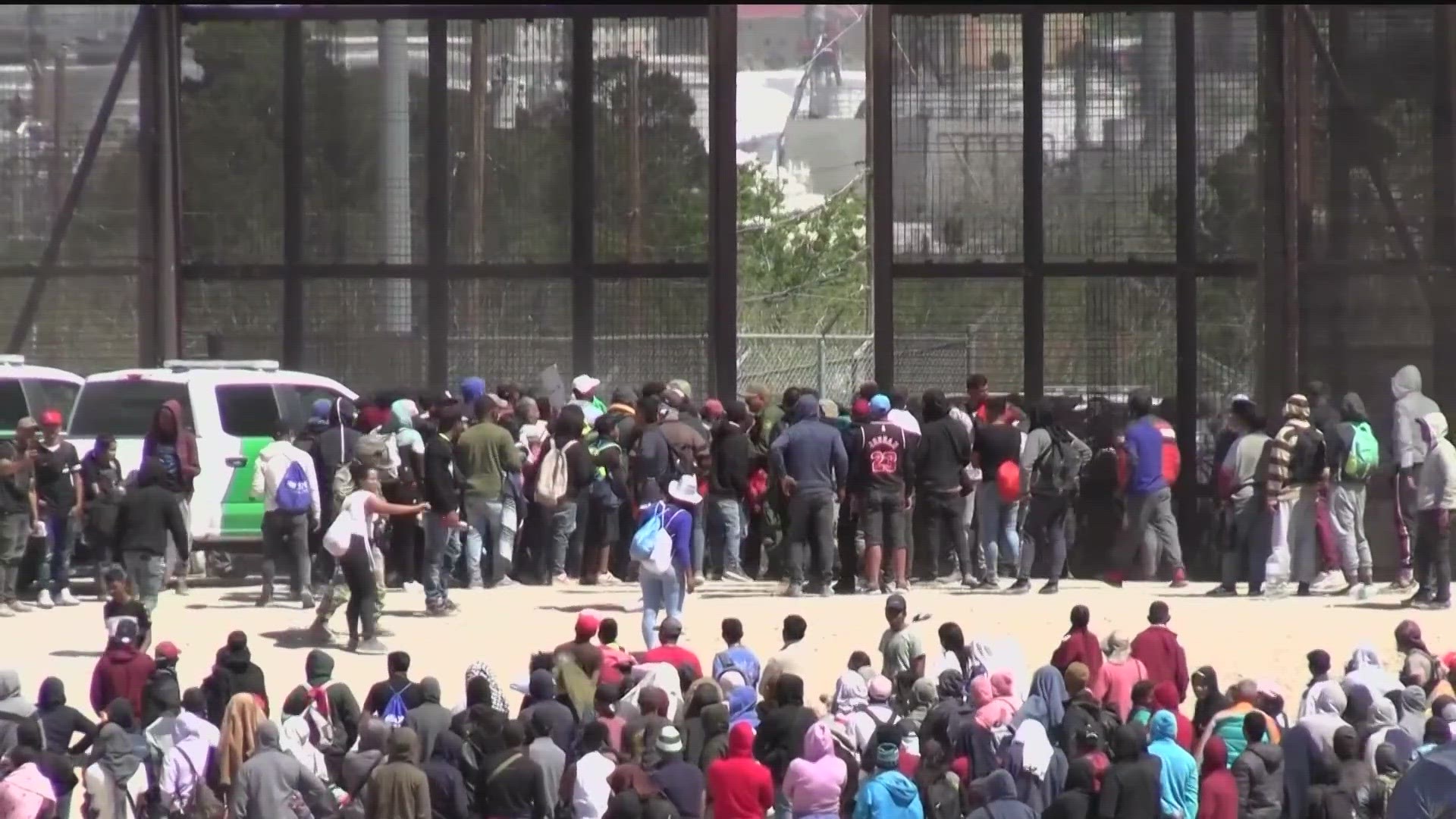ATLANTA — Georgia is getting ready for the expected increase of migrants entering the U.S. along the southern border, who may then move to communities across the country.
On May 11, the temporary restrictions on immigration, which the federal government put in place under “Title 42” during the pandemic, will be lifted.
However, that doesn’t mean everyone who enters the U.S. starting Thursday will be able to stay in the U.S.
Only a portion of those seeking asylum will be granted asylum, and it could then take months for those granted asylum to obtain work permits and then travel to Georgia and other states.
That’s according to veteran Atlanta immigration attorney Charles Kuck, who says the initial video from the U.S.-Mexico border, beginning Thursday, will be dramatic.
“What will happen? You will see videos of lots of people coming to the border, thousands of them, because they've been lining up in Mexico for weeks in anticipation of the much built-up end of Title 42” restrictions, Kuck said Monday. “And we will see a massive surge because the one thing that nobody is talking about is--why are there so many people at the border all of a sudden? And it's because we have unprecedented levels of refugee crises in Latin America that we've never seen in our history. So, the migrants are not generally Mexicans coming in. These are from Central and South America, where crises in their own countries are compelling them to come forward.”
But with the end of the COVID restrictions, Kuck said, the U.S. will again be empowered to deport each migrant who does not qualify for asylum--under orders from the president.
“If you have an asylum hearing right away and you're denied,” Kuck said, “he's going to deport you back to your home country,” as the U.S. will begin enforcing federal laws which were suspended under the temporary Title 42.
“So the number of immigration detentions at the border is about to skyrocket, probably to unprecedented levels,” Kuck added, as asylum requests are processed.
Under Title 42, Kuck said, the U.S. has simply been sending people back across the border to Mexico, and many would just come back seeking asylum again the next day.
Beginning Thursday, Kuck said, “people will again start to be deported to their home countries. They’re going to deport you back to Peru, or they’re going to deport you back to Colombia. This enables that process. And that’s the message that needs to be delivered to those countries. Desiring a better life is not asylum. You will not be allowed to stay in the U.S. if just wanting a better life is why you’re coming to America.”
But Georgia Governor Brian Kemp is not so sure that’s how it will work, saying that state law enforcement expects that criminals--not necessarily mere asylum seekers--will get through and then come to Georgia.
The lifting of the Title 42 restrictions, Kemp said Monday, “will have an impact across the country, Georgia included... from a risk in fentanyl to human trafficking.”
Georgia Attorney General Chris Carr has gone to court to try to stop the Biden Administration from lifting the immigration restrictions.
But Kuck said the proportion of criminals managing to get through would be no greater than it is in the U.S. population as a whole; the vast majority, he said, will seek work permits. Approval of each work-permit application could take six months. But, he said, the sooner they can get to Georgia and go to work, the better.
It helps solve "a major problem for Georgia employers who have a desperate need of workers,” he said. “We have a massive employment crisis in Georgia, and we don't have enough bodies to do all the jobs that we're creating. So it's not necessarily a bad thing, but at the same time, Congress needs to step in and fix this issue. The only way to fix this issue is a better, legal, immigration system.”
Kuck expects that after Thursday, once the U.S. resumes deportations of new arrivals who are not granted asylum, the initial influx of new migrants will decrease rapidly within a few weeks.

